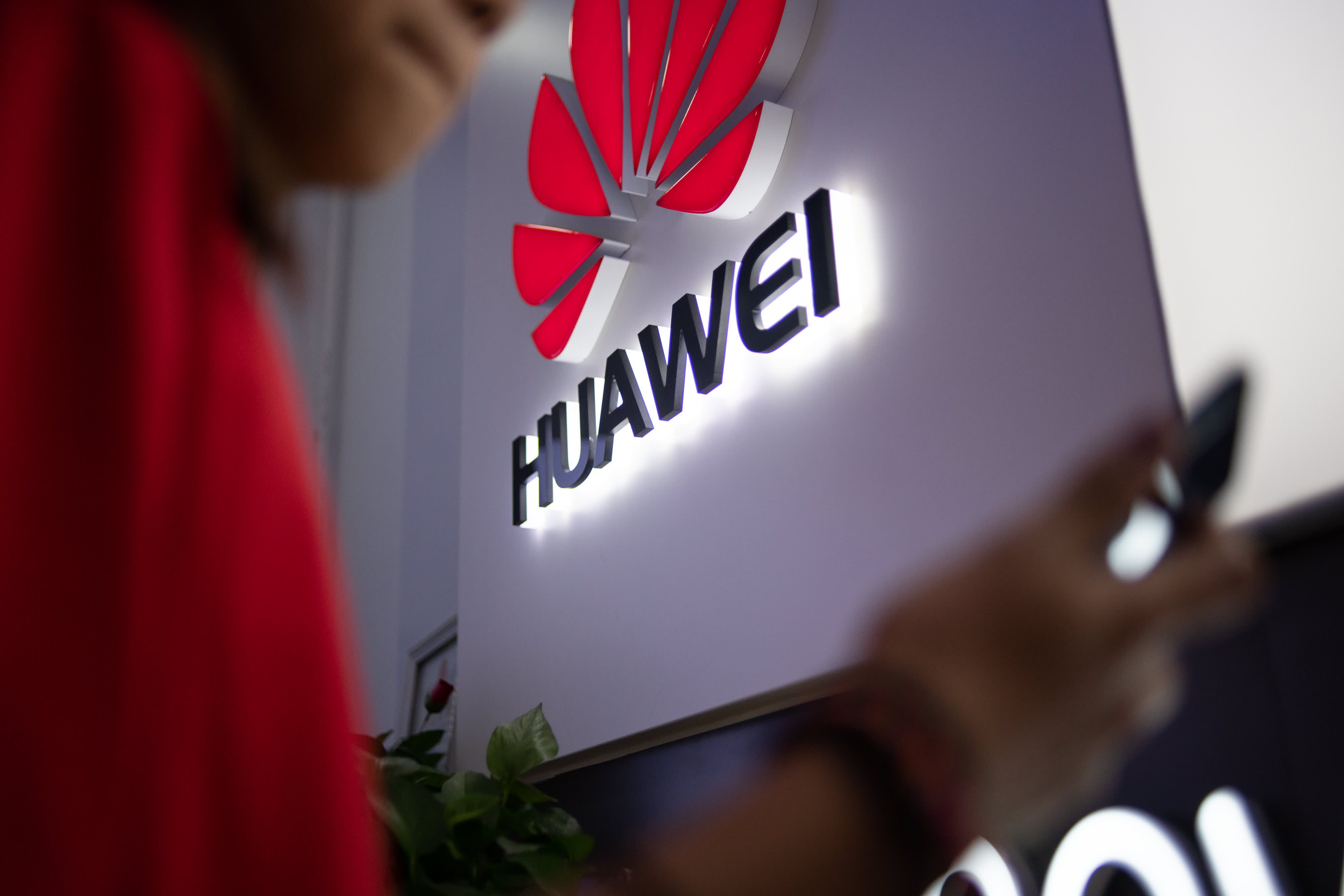
A Huawei logo is displayed at a retail store in Beijing, China on May 27, 2019.
Fred Dufour | AFP | Getty Images
It's been a tumultuous year for Huawei.
On one hand, the Chinese technology giant has faced continued pressure from the U.S. which has accused Huawei of being a national security risk, and led to its blacklisting by Washington. On the other hand, the company has continued to increase revenue and strike deals to be part of next-generation mobile internet infrastructure known as 5G.
For 2019, Huawei said its estimated sales revenue will top 850 billion yuan ($121.66 billion), up about 18% on-year but still lower than the company's initial projections.
Heading into 2020, Huawei will face a number of big challenges.
Potential block from more markets
While Huawei has signed a number of 5G commercial contracts, there are still some significant markets that have not yet decided on whether to let the Chinese giant into their next-generation mobile networks.
While Australia and Japan have effectively blocked Huawei from their 5G networks, some countries are still undecided. Germany and the U.K., seen as crucial markets for Huawei, have yet to make a decision.
Any ban from either of those countries will be closely watched to see if other major markets follow suit.
President Donald Trump has reportedly been pressuring allied countries to ban Huawei from their 5G networks. Washington maintains that Huawei is a national security risk because its equipment could be used for espionage by the Chinese government. Huawei has repeatedly denied those allegations.
The blacklist
Earlier this year, Huawei was put on a U.S. government blacklist, known as the Entity List. This prohibits U.S. companies from doing business with Huawei without a special license. Huawei relies heavily on American software and components.
Some U.S. companies however have continued to sell to Huawei, utilizing a loophole in the regulations. Bloomberg reported this month that the U.S. government was considering tightening the rules.
Over the past few years, Huawei has been diversifying its supply chain and focusing on in-house design of key components like chips. But the Entity List has hurt Huawei in one key area — smartphones.
The company released its flagship Mate 30 smartphone in September without a licensed version of Google's Android mobile operating system. That means users buying the new phone do not have Google apps pre-installed.
While globally, particularly in China, Huawei's smartphone shipments are growing, it saw a decline in the second quarter and no growth in the third quarter.
Google Android is not that important for Huawei in China because the U.S. firm's services — such as Gmail and search — are blocked there anyway. However, it's very important for international markets with users who rely on many of Google's apps.
For its part, Huawei said it expects to remain on the U.S. blacklist in 2020.
"We won't grow as rapidly as we did in the first half of 2019, growth that continued throughout the year owing to sheer momentum in the market," said Huawei's rotating Chairman Eric Xu in a statement on Tuesday.
"It's going to be a difficult year for us," Xu said about 2020, adding, "Survival will be our first priority."
Huawei's operating system
In August, Huawei introduced its own operating system called HarmonyOS. It touted the operating system as one that could be used across various devices from TVs to smartphones.
At that time, Richard Yu, the head of Huawei's consumer division, said the company could "immediately" switch to HarmonyOS from Android if it was permanently blocked from using Google's software. But so far, the company has indicated it will not use HarmonyOS on its smartphones.
All eyes will be on what Huawei does with HarmonyOS as it continues to launch new devices.
CFO on trial
Huawei's Chief Financial Officer Meng Wanzhou was arrested in Canada in December 2018 at the behest of the U.S. authorities.
The U.S. is seeking the extradition of Meng, who is also the daughter of Huawei founder Ren Zhengfei. The American government alleges that Meng committed bank fraud in relation to skirting U.S. sanctions on Iran. Meng has denied the allegations.
Her legal team has sought to get the case thrown out, and the hearings will continue into 2020.
— CNBC's Saheli Roy Choudhury contributed to this report.
via IFTTT
No comments:
Post a Comment